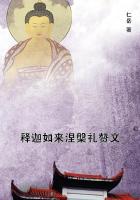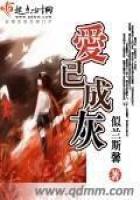This is a question which has an interest not only for Russians, but for all students of social science, for it tends to throw light on the difficult subject as to how far institutions may be successfully transplanted to a foreign soil. Many thinkers hold, and not without reason, that no institution can work well unless it is the natural product of previous historical development. Now we have here an opportunity of testing this theory by experience; we have even what Bacon terms an experimentum crucis. This new judicial system is an artificial creation constructed in accordance with principles laid down by foreign jurists. All that the elaborators of the project said about developing old institutions was mere talk. In reality they made a tabula rasa of the existing organisation. If the introduction of public oral procedure and trial by jury was a return to ancient customs, it was a return to what had been long since forgotten by all except antiquarian specialists, and no serious attempt was made to develop what actually existed. One form, indeed, of oral procedure had been preserved in the Code, but it had fallen completely into disuse, and seems to have been overlooked by the elaborators of the new system.*
I refer to the so-called Sud po forme established by an ukaz of Peter the Great, in 1723. I was much astonished when I
accidentally stumbled upon it in the Code.
Having in general little confidence in institutions which spring ready-made from the brains of autocratic legislators, I expected to find that this new judicial organisation, which looks so well on paper, was well-nigh worthless in reality. Observation, however, has not confirmed my pessimistic expectations. On the contrary, I
have found that these new institutions, though they have not yet had time to strike deep root, and are very far from being perfect even in the human sense of the term, work on the whole remarkably well, and have already conferred immense benefit on the country.
In the course of a few years the Justice of Peace Courts, which may perhaps be called the newest part of the new institutions, became thoroughly acclimatised, as if they had existed for generations.
As soon as they were opened they became extremely popular. In Moscow the authorities had calculated that under the new system the number of cases would be more than doubled, and that on an average each justice would have nearly a thousand cases brought before him in the course of the year. The reality far exceeded their expectations: each justice had on an average 2,800 cases. In St.
Petersburg and the other large towns the amount of work which the justices had to get through was equally great.
To understand the popularity of the Justice of Peace Courts, we must know something of the old police courts which they supplanted.
The nobles, the military, and the small officials had always looked on the police with contempt, because their position secured them against interference, and the merchants acquired a similar immunity by submitting to blackmail, which often took the form of a fixed subsidy; but the lower classes in town and country stood, in fear of the humblest policeman, and did not dare to complain of him to his superiors. If two workmen brought their differences before a police court, instead of getting their case decided on grounds of equity, they were pretty sure to get scolded in language unfit for ears polite, or to receive still worse treatment. Even among the higher officers of the force many became famous for their brutality. A Gorodnitchi of the town of Tcherkassy, for example, made for himself in this respect a considerable reputation. If any humble individual ventured to offer an objection to him, he had at once recourse to his fists, and any reference to the law put him into a state of frenzy. "The town," he was wont to say on such occasions, "has been entrusted to me by his Majesty, and you dare to talk to me of the law? There is the law for you!"--the remark being accompanied with a blow. Another officer of the same type, long resident in Kief, had a somewhat different method of maintaining order. He habitually drove about the town with a Cossack escort, and when any one of the lower classes had the misfortune to displease him, he ordered one of his Cossacks to apply a little corporal punishment on the spot without any legal formalities.
In the Justice of Peace Courts things were conducted in a very different style. The justice, always scrupulously polite without distinction of persons, listened patiently to the complaint, tried to arrange the affairs amicably, and when his efforts failed, gave his decision at once according to law and common-sense. No attention was paid to rank or social position. A general who would not attend to the police regulations was fined like an ordinary workingman, and in a dispute between a great dignitary and a man of the people the two were treated in precisely the same way. No wonder such courts became popular among the masses; and their popularity was increased when it became known that the affairs were disposed of expeditiously, without unnecessary formalities and without any bribes or blackmail. Many peasants regarded the justice as they had been wont to regard kindly proprietors of the old patriarchal type, and brought their griefs and sorrows to him in the hope that he would somehow alleviate them. Often they submitted most intimate domestic and matrimonial concerns of which no court could possibly take cognisance, and sometimes they demanded the fulfilment of contracts which were in flagrant contradiction not only with the written law, but also with ordinary morality.*
Many curious instances of this have come to my knowledge, but they are of such a kind that they cannot be quoted in a work intended for the general public.















